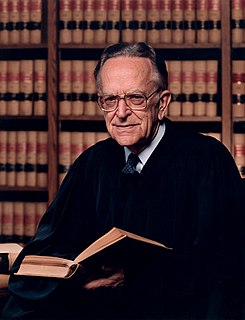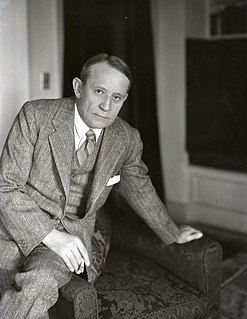A Quote by James Madison
Waiving the rights of conscience, not included in the surrender implied by the social state, & more or less invaded by all Religious establishments, the simple question to be decided, is whether a support of the best & purest religion, the Christian religion itself ought not, so far at least as pecuniary means are involved, to be provided for by the Government, rather than be left to the voluntary provisions of those who profess it.
Related Quotes
Religious institutions that use government power in support of themselves and force their views on persons of other faiths, or of no faith, undermine all our civil rights. Moreover, state support of an established religion tends to make the clergy unresponsive to their own people, and leads to corruption within religion itself. Erecting the 'wall of separation between church and state,' therefore, is absolutely essential in a free society.
The Free Exercise Clause at the very least was designed to guarantee freedom of conscience by prohibiting any degree of compulsion in matters of belief. It was offended by a burden on one's religion. The Establishment Clause can be understood as designed in part to ensure that the advancement of religion comes only from the voluntary efforts of its proponents and not from support by the state. Religious groups are to prosper or perish on the intrinsic merit and attraction of their beliefs and practices.
The ecclesiastical establishments of Europe, which serve to support tyrannical governments, are not the Christian religion, but abuses and corruptions of it. The religion of Christ and his apostles, in it primitive simplicity and purity, unencumbered with the trappings of power and the pomp of ceremonies, is the surest basis of a republican government.
The "establishment of religion" clause of the First Amendment means at least this: Neither a state nor the Federal Government can set up a church. Neither can pass laws which aid one religion, aid all religions, or prefer one religion over another. Neither can force nor influence a person to go to or to remain away from church against his will or force him to profess a belief or disbelief in any religion.
In every age immorality has found no less support in religion than morality has. If the achievements of religion in respect to man's happiness, susceptibility to culture and moral control are no better than this, the question cannot but arise whether we are not overrating its necessity for mankind, and whether we do wisely in basing our cultural demands upon it.
As the government of the United States is not, in any sense, founded on the Christian religion; as it has in itself no character of enmity against the laws, religion or tranquility of Musselmen [Muslims] ... it is declared ... that no pretext arising from religious opinion shall ever product an interruption of the harmony existing between the two countries.... The United States is not a Christian nation any more than it is a Jewish or a Mohammedan nation.
The incipient magician will confess his faith to a universal religion. He will find out that every religion has good points as well as bad ones. He will therefore keep the best of it for himself and ignore the weak points, which does not necessarily mean that he must profess a religion, but he shall express awe to each for of worship, for each religion has its proper principle of God, whether the point in question be Christianity, Buddhism, Islam or any other kind of religion.
We have solved, by fair experiment, the great and interesting question whether freedom of religion is compatible with order in government and obedience to the laws. And we have experienced the quiet as well as the comfort which results from leaving every one to profess freely and openly those principles of religion which are the inductions of his own reason and the serious convictions of his own inquiries.
We are bound to maintain public liberty, and, by the example of our own systems, to convince the world that order and law, religion and morality, the rights of conscience, the rights of persons, and the rights of property, may all be preserved and secured, in the most perfect manner, by a government entirely and purely elective. If we fail in this, our disaster will be significant, and will furnish an argument, stronger than has yet been found, in support of those opinions which maintain that government can rest safely on nothing but power and coercion.
Religion and liberty are inseparable. Religion is voluntary, and cannot, and ought not to be forced. This is a fundamental article of the American creed, without distinction of sect or party. Liberty, both civil and religious, is an American instinct. Such liberty is impossible on the basis of a union of church and state, where the one of necessity restricts or controls the other. It requires a friendly separation, where each power is entirely independent in its own sphere.
We are driven to confess that we actually care more for religion than we do for religious theories and ideas: and in merely making that distinction between religion and its doctrine-elements, have we not already relegated the latter to an external and subordinate position? Have we not asserted that "religion itself" has some other essence or constitution than mere idea or thought?
































